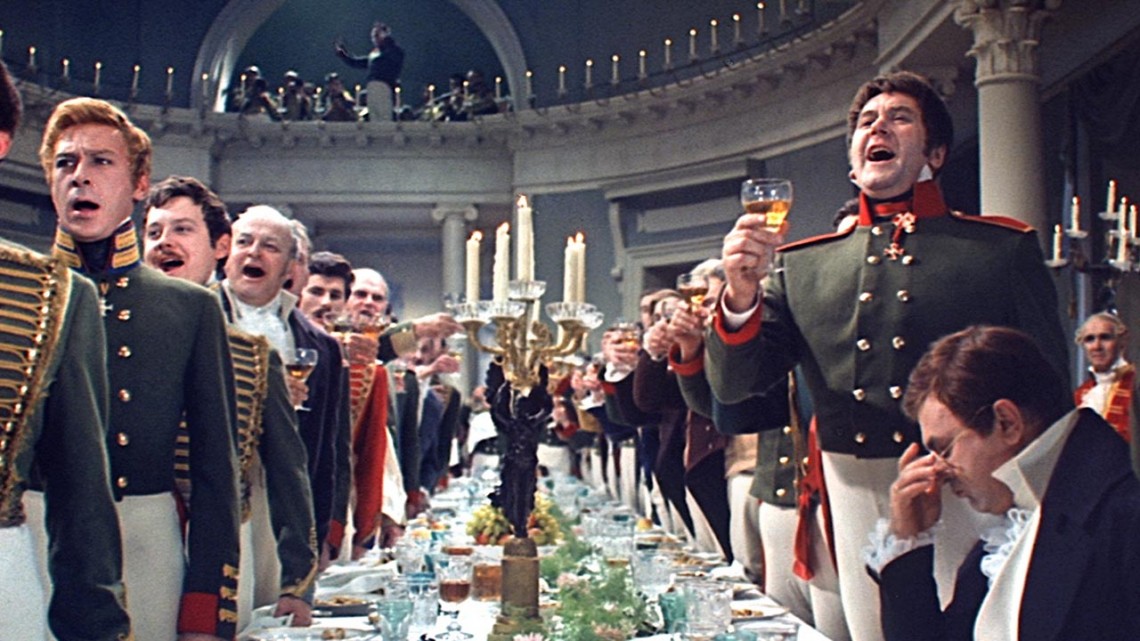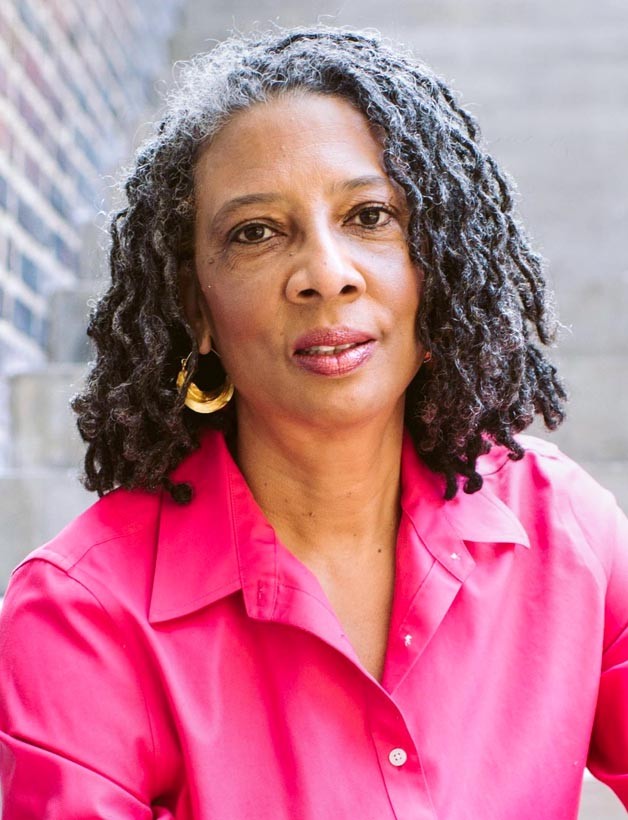
Cornell Cinema is screening the epic 1966 Russian adaptation of “War and Peace” in four parts starting Oct. 20.
Things to Do, Oct. 18-25, 2019
By Daniel Aloi
Hindu community space opens
Cornell’s Hindu Student Council will host an opening ceremony for its new permanent space in Anabel Taylor Hall on Saturday, Oct. 19, 4-5:30 p.m. in the Anabel Taylor Chapel and Founders Room.
The event is open to the public; all are welcome. It will feature a puja prayer ritual celebrating the occasion, speakers, guests from the campus and local community, and refreshments including samosa chaat, gulab jamun and chai.
The space, for Hindus on campus and in the greater Ithaca community, will be open for community members to sit, meditate or pray at any time when Anabel Taylor Hall is open.
The Hindu Student Council has been holding weekly worship services in shared spaces on campus since it was founded in the late 1990s. The organization also sponsors events and celebrations such as Diwali and Holi.
“Since many of our holidays fall on weekdays and the nearest Hindu temple is in Syracuse, this is a big step for us,” said board member Anuush Vejalla ’20.
Vocal ensemble in concert
The Lorelei Ensemble brings a program of vocal music to Bailey Hall, Oct. 19 at 8 p.m., as part of the Cornell Concert Series. Tickets are $25 and $30 general, $19 for students, at universitytickets.com.
The vocal ensemble comprises nine women whose expertise extends from Medieval to contemporary repertoire. All have independent careers as soloists and ensemble singers around the world.
Under the direction of founder and artistic director Beth Willer, the group’s culturally relevant, diverse and inventive concert programs have added to its nationwide reputation for musicality and a sound The New York Times has heralded as “warm, lithe, and beautifully blended.”
The complete ‘War and Peace’
Cornell Cinema presents Russian filmmaker Sergei Bondarchuk’s newly restored 1966 epic “War and Peace” in four binge-worthy parts, Oct. 20 through Nov. 6 in Willard Straight Theatre.
With an unknown budget (estimated at more than $700 million in today’s dollars), authentic props and costumes from Russian museums and thousands of Soviet army extras, the visionary adaptation of Leo Tolstoy’s novel of the Napoleonic Wars was a Cold War-era exercise in Soviet might, outdoing the biggest Hollywood features. The effort won the 1969 Academy Award for Best Foreign-Language Film.
“War and Peace: Chapter I, Andrei Bolkonsky” is Sunday, Oct. 20 at 7 p.m.; “Chapter II, Natasha Rostova” is Oct. 27 at 7 p.m.
Viewers can see it over three weeks, or watch the complete four-part film Sunday, Nov. 3, starting at 1:45 p.m. (The only screening of “Chapter III, The Year 1812” is Nov. 3 at 7 p.m.)
History professor Olga Litvak, who is teaching the seminar Tolstoy: History and Counter-Culture, has organized a discussion and reception Wednesday, Nov. 6, 6:15-7:45 p.m., following the second showing of “Chapter IV, Pierre Bezukhov” at 4:30 p.m.
Each part has a separate admission charge; All Access Pass holders get in free to all. Get single tickets or passes at the cinema box office or cornellcinematickets.com.
‘Difference and Disease’
The evolution of medicine in the British Empire was deeply intertwined with constructions of race, according to Suman Seth, a professor of history and of science and technology studies.
Seth discusses how medicine influenced ideas of race as detailed in his new book, “Difference and Disease: Medicine, Race, and the Eighteenth-Century British Empire,” in a Chats in the Stacks talk on Oct. 22, 4:30–5:30 p.m. in 107 Olin Library. The event is free and open to the public, with refreshments provided.
Seth explores the complex histories of tropical medicine and early British colonial politics in the book, and how racial categories and binaries grew out of viewing the world as divided into tropical and temperate zones.
Reading by Desiree Cooper
The Fall 2019 Barbara & David Zalaznick Creative Writing Reading Series comes to a close Oct. 24 with a reading by Desiree Cooper, an award-winning journalist, women’s rights activist, poet, flash-fiction writer, essayist and filmmaker.
Her reading, at 4:30 p.m. in Rhodes-Rawlings Auditorium, Klarman Hall, is free and open to the public. American Sign Language interpretation will be provided. A reception and book signing will follow in the English Lounge, 258 Goldwin Smith Hall.
Cooper is a Detroit community activist, a former attorney, and a writer and public speaker on themes of racial and gender equality, reproductive freedom, family-positive public policy and the welfare of women and girls.
A former columnist for the Detroit Free Press, she has earned two Pulitzer Prize nominations for journalism. In 2018, she wrote, produced and co-directed “The Choice,” a short film about abortion aimed at breaking the stigma around women’s reproductive health decisions.
Her debut collection of flash fiction, “Know the Mother,” won several awards including the 2017 Next Generation Indie Book Award and the 2017 Midland Authors Award in Adult Fiction. Cooper’s fiction, poetry and essays have appeared in “The Best Small Fictions 2018,” Callaloo, Michigan Quarterly Review, Hypertext Review and “Best African American Fiction 2010,” among other publications. She is a 2015 Kresge Artist Fellow.
A future, in progress
What would Earth look like if we banded together to counter the destructive forces of climate change?
Writers Aoise Stratford and Toby Ault bridge art and science in the multimedia experience “Virtual Landscapes,” a staged reading, Oct. 24 at 4:30 p.m. in the Schwartz Center for the Performing Arts’ Film Forum. It is free and open to the public.
Set 100 years from now, the play uses video footage and live actors to peer into a future in which humanity celebrates the efforts of their predecessors to save the planet.
Stratford, a playwright and lecturer in the Department of Performing and Media Arts, and Ault, associate professor of earth and atmospheric sciences, collaborated with atmospheric sciences graduate students to draw on climate science research that reveals the severity of our environmental future.
The event offers audiences the opportunity to contribute to the play-in-progress. Following the reading, audience members are encouraged to share their perspectives and thoughts about the play.
“As a playwright, my job is to ask questions,” Stratford says. “That’s something theater has in common with science. … Ultimately, the piece will incorporate augmented-reality technology and have a site-specific performance. This … is a really important step toward that.”
The internet and democracy
The internet’s role as a tool for both civic education and misinformation is the focus of the Cornell Center for Social Sciences’ Distinguished Lecture in the Social Sciences, on Thursday, Oct. 24.
David Lazer of Northeastern University will discuss “Democracy, Today: Fake News, Social Networks, and Algorithms” at 4:30 p.m. in Alice Statler Auditorium. Free and open to the public, the lecture will be followed by a public reception in the Statler Hotel’s Carrier Ballroom.
The lecture will address the internet’s growing role as a space for civic information and political engagement, while also serving as the ultimate disseminator of misinformation, undermining many civic and political institutions. Lazer will discuss the “informational and social logics of the internet” and what changes are needed to support democracy today.
Lazer is a professor of political science and computer and information science at Northeastern, where he co-directs the Lab for Texts, Maps, and Networks. He studies the nexus of network science, computational social science and collaborative intelligence. He founded the citizen science website Volunteer Science and the political visualization website VisPolics, and is frequently cited in the news media.
Media Contact
Get Cornell news delivered right to your inbox.
Subscribe

